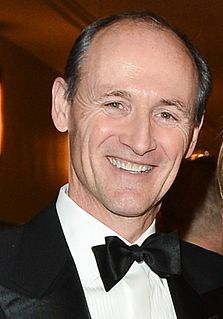A Quote by Jeremy Irons
I succeeded on sort of chutzpah and charm. No technique at all, didn't know what I was doing, but it worked and the character suited me.
Related Quotes
We just, you know, we're just sort of doing it like Bewitched, because we just think that the character of Kenny is so specific and so outrageous and so fun. And by far the hardest character to cast out of everybody to find someone who was capable of, you know, doing, you know, the comedy and just with the broadness and to be also just a really brilliant actor, you know, to do naturalism.
I started doing sculpture rather than painting. I was halfway through my degree, and I hadn't really done any introduction courses in sculpture... I'd missed all the technical stuff. I didn't really know how to weld or forge or carve or model. I'd sort of evaded all those technique classes, so I had no technique.
As an athlete, success is not just about winning; it is about working hard and giving it all you have. I have always taken one match at a time and worked hard; when I succeeded, I worked further on the aspects of the game which worked for me; when I failed, I listed out my weaknesses and worked on them.
As I talk about strengths and weaknesses in academic economics, one interesting fact you are entitled to know is that I never took a course in economics. And with this striking lack of credentials, you may wonder why I have the chutzpah to be up here giving this talk. The answer is I have a black belt in chutzpah. I was born with it.
Yes, I am one of those people who feels that most of my work is adaptation of one sort or another. For me, it's a way to jump-start the engine. For example, some people use the technique of basing a character on a friend. They start writing with his or her voice, then at a certain point, the character takes off on his or her own. It probably no longer resembles the model, but it helped the author to get going. I find that's true of form, too. For every play I've written, I know what play I was trying to imitate. That helps me get going.



































